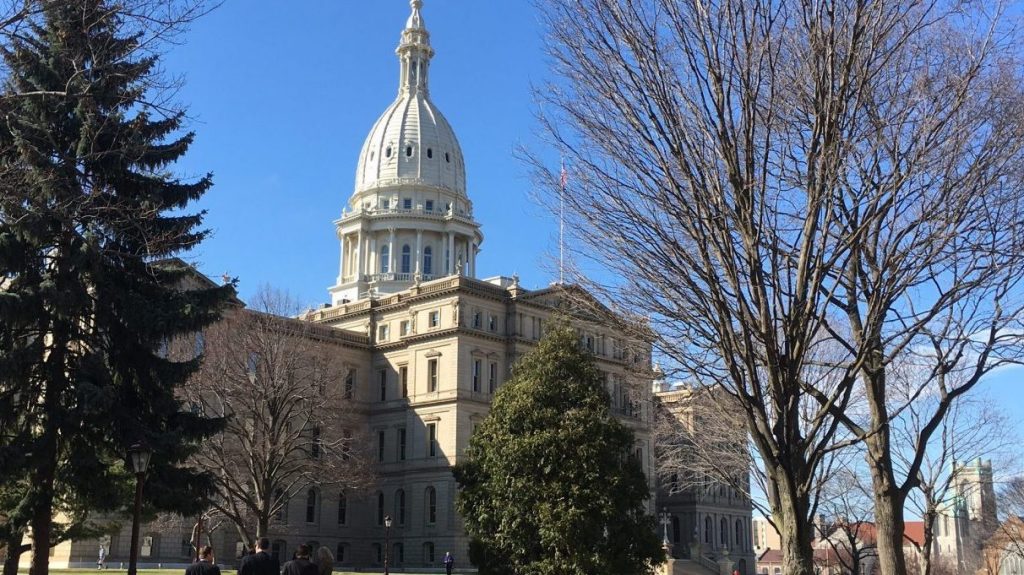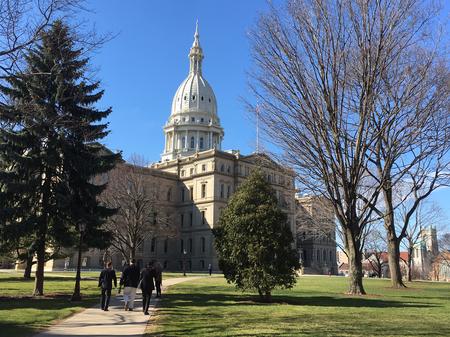Lawsuit: State Shortchanging Locals By $4 Billion A Year
The lawsuit says a shell game has been taking place since voters adopted Proposal A in the mid-1990s.

Photo of the Michigan State Capitol building.

A lawsuit says Michigan is short-changing local governments $4 billion dollars a year.
If it succeeds, it would blow a giant hole in the state budget and send legislators and state budget officials scrambling to find a fix.
The legal action was filed by public interest attorneys and local government officials. It says the state has been violating the Headlee Amendment to the state constitution by denying local governments their fair share of state sales tax revenue.
“Over many years, over 20 years or more, the state has been shifting the tax burden to local governments,” said John Mogk, the Wayne State University law professor who is the lead attorney.
The lawsuit says a shell game has been taking place since voters adopted Proposal A in the mid-1990s, which increased the sales tax to raise money for schools in lieu of property taxes. Mogk says there was an unintended consequence – the state reneged on its promise when it comes to sharing sales tax revenue with local governments.
Local officials have long complained that Republican and Democratic governors and legislators have abused their discretion to disburse revenue sharing dollars. This lawsuit says they violated not just the spirit, but the letter of the law.
The lawsuit says the state’s been ripping off local governments in four specific ways since the 1990s, when the state started using the sales tax for schools under Proposal A. It says payments to school districts, charter schools, to counties for maintaining state trunklines, and money for state mandates have all been illegally counted as discretionary revenue sharing payments by the state to local governments.
“Accordingly, revenue sharing to local governments is going down in violation of the constitution,” said Mogk.
The lawsuit also says the state’s not kept track of all the unfunded mandates imposed on local governments.
Mogk says the state’s denying local governments all the money they had coming led to dire consequences for those teetering in the edge of insolvency.
“That meant that some of them became distressed, and that meant that some of them had emergency managers appointed,” he said. “Now, the violation doesn’t necessarily cause the appointment of emergency managers, but it likely contributed significantly.”
The State Budget Office released the following statement:
“The Office of Financial Management within the State Budget Office works hard each year to properly identify expenditures to determine the amount of state spending that goes to the aid of local governments. Those expenditures are in turn submitted to the Office of Auditor General for validation to ensure the calculations are accurate. This is a methodology that has been applied consistently since the passage of Proposal A. The State Budget Office will take time to further review the complaint, but it’s important to note that these calculations have been consistently applied over time.”
